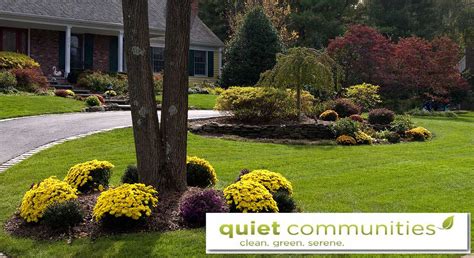A Lush Green Lawn: Organically Removing Clover
A vibrant, green lawn is the envy of any homeowner. But the unwelcome intrusion of clover can quickly disrupt that picture-perfect scene. While clover might offer some ecological benefits, its presence in a manicured lawn is often undesirable. Fortunately, there are effective organic methods to remove clover without resorting to harsh chemicals that can harm your soil, pets, and the environment. This guide provides a comprehensive approach to organically reclaiming your lawn from clover.
Why is Clover in My Lawn?
Before tackling clover removal, it's helpful to understand why it's there in the first place. Clover thrives in areas with:
- Poor soil conditions: Compacted soil, low nutrient levels, and acidic pH are all attractive to clover.
- Thin grass: Sparse grass leaves open spaces for clover to colonize. This is often a sign of underlying soil issues or improper lawn care.
- Excessive shade: While some clover varieties tolerate sun, many prefer partial shade.
- Over-watering or poor drainage: Soggy soil creates ideal conditions for clover growth.
Addressing these underlying issues is crucial for long-term clover control.
How to Organically Remove Clover from Your Lawn
Organic clover removal focuses on improving your lawn's health and making it less hospitable to clover. This multi-pronged approach yields better, longer-lasting results than simply spot-treating weeds.
1. Improve Soil Health
Healthy soil is the foundation of a thriving lawn. Clover thrives in poor soil, so improving soil health is the first step. This involves:
- Soil testing: A soil test will reveal your soil's pH and nutrient levels. Adjust accordingly with lime (to raise pH) or organic fertilizers (to provide nutrients).
- Aerating: Core aeration helps improve drainage and allow air, water, and nutrients to reach the grass roots. This is particularly beneficial for compacted soil.
- Topdressing: Applying a thin layer of compost or other organic matter improves soil structure, drainage, and nutrient content.
2. Overseeding and Thickening Your Lawn
A thick, healthy lawn is the best defense against weeds like clover. Overseeding involves planting additional grass seed to fill in bare patches and thicken existing areas. Choose a grass seed mix appropriate for your climate and soil conditions.
3. Proper Mowing and Watering Practices
- Mowing height: Maintain the proper mowing height for your grass type. Taller grass shades out weeds more effectively.
- Watering: Water deeply and less frequently to encourage deep root growth. Avoid overwatering, which can create soggy soil ideal for clover.
4. Hand-Pulling Clover
For small clover infestations, hand-pulling is an effective method. Ensure you remove the entire root system to prevent regrowth. This is best done after a rain or watering, when the soil is soft and easier to work with.
5. Organic Weed Control
While hand-pulling is effective for small areas, organic herbicides can be used for larger infestations. Look for products based on natural ingredients, such as corn gluten meal, which prevents weed seed germination. Apply according to package instructions.
What are some common organic clover control methods?
Many organic methods exist for controlling clover, each with its own advantages and disadvantages. Hand-pulling is time-consuming but effective for small areas. Overseeding strengthens the lawn's defenses. Improving soil health addresses the root cause of clover growth. Finally, utilizing organic herbicides offers a targeted approach.
How can I prevent clover from returning to my lawn?
Preventing clover's return involves ongoing lawn maintenance. Consistent mowing at the proper height, regular watering, and periodic soil testing and fertilization are essential. Addressing soil compaction through aeration and topdressing can significantly reduce clover's chances of re-establishing itself. A proactive approach, focused on maintaining a healthy lawn, is the most effective long-term solution.
Is there a natural herbicide that will kill clover?
Several natural herbicides can help control clover, but they may not eliminate it entirely. Corn gluten meal is a popular choice, preventing seed germination, but it doesn't kill existing plants. Vinegar is another option, but it must be used cautiously, as it can damage desirable plants as well. Always follow product instructions carefully.
By implementing these organic methods, you can effectively remove clover and create a lush, green lawn that will be the envy of your neighborhood. Remember, patience and consistency are key to achieving long-term success. The health of your soil and the overall vigor of your grass are the ultimate weapons against unwanted weeds.

